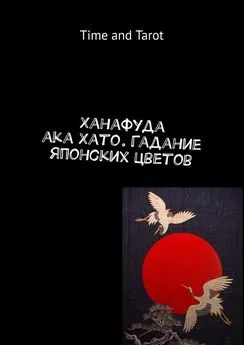Toni Morrison - Tar Baby
- Название:Tar Baby
- Автор:
- Жанр:
- Издательство:неизвестно
- Год:неизвестен
- ISBN:нет данных
- Рейтинг:
- Избранное:Добавить в избранное
-
Отзывы:
-
Ваша оценка:
Toni Morrison - Tar Baby краткое содержание
Tar Baby - читать онлайн бесплатно полную версию (весь текст целиком)
Интервал:
Закладка:
“How’s your toe?”
“Lonely.”
“Mine too.”
“Come home for lunch.”
“I only have thirty minutes for lunch, baby.”
“Come anyway.”
“I won’t be able to get back in time. I’ll lose a half-day’s pay.”
“I’ll make it worth your while.”
He came home and didn’t report to work again until she could walk effortlessly. In the meantime they ate Chinese food in the tub. She read True Confessions stories to him with appropriate “white girl” voices and gestures and he laughed until his chest hurt. She read Césaire to him and he closed his eyes. She read the sexy parts of the Bible and he looked at her.
Gradually she came to feel unorphaned. He cherished and safeguarded her. When she woke in the night from an uneasy dream she had only to turn and there was the stability of his shoulder and his limitless, eternal chest. No part of her was hidden from him. She wondered if she should hold back, keep something in store from him, but he opened the hair on her head with his fingers and drove his tongue through the part. There was nothing to forgive, nothing to win and the future was five minutes away. He unorphaned her completely. Gave her a brand-new childhood. They were the last lovers in New York City—the first in the world—so their passion was inefficient and kept no savings account. They spent it like Texans. When he had a sore throat so bad he could not speak, she put him to bed and drew a checker board on the inside of a Bergdorf box. They played the game with M&M’s. It didn’t work because the crowns wouldn’t stay still, so they used her Enovids instead, partly because of their plane surface and partly to keep her from eating the pieces jumped by her kings. She told him straight brandy was good for his throat and made him drink so much so fast, he passed out. She didn’t like his being unconscious without her so she drank the rest and passed out with him. He woke first and vomited the strep away. After bathing and dressing, he watched her sleep. She woke unable to see, speak or move and he put his huge hand on her forehead until she could. They didn’t go to parties anymore—other people interfered with their view of each other. They stopped going to Suggs and Across 110th Street. They stopped laughing and began to smile at each other. From across the room, across the mattress, across the table. Their language diminished to code at times, and at others ballooned to monologues delivered while cradled in the other’s arms. They never looked at the sky or got up early to see a sunrise. They played no music and hadn’t the foggiest notion that spring was on its way. Vaguely aware of such things when they were apart, together they could not concentrate on the given world. They reinvented it, remembered it through the other. He looked at her face in the mirror and was reminded of days at sea when water looked like sky. She surveyed his body and thought of oranges, playing jacks, and casks of green wine. He was still life, babies, cut glass, indigo, hand spears, dew, cadmium yellow, Hansa red, moss green and the recollection of a tree that wanted to dance with her. It was difficult to be sober, to take anything other than themselves seriously, but they managed occasionally. She thought about calling her old professor who said he could always find work for her. But maybe May would be a better time to ring him—after exams. They discussed opening a retail flower shop and boutique that they could call Jade and Son; they discussed bank robbery and an agency for black models; they discussed the New School and Empire State and figured out a way to collect Gideon’s unemployment checks.
But Jadine was not worried. She had $1,940 in the bank, $5,000 in Paris and connections. If push came to shove, she’d go permanent with an agency and work her behind off.
The check scheme worked, but he had time to pick up just one check before they left hand-in-hand for Eloe.
8
THE AIR was so charged with pain the angel trumpets could not breathe it. Rows of them wrinkled on the vine and fell unnoticed right in Valerian’s sightline. He sat in the greenhouse oblivious to everything but 1950 when he heard for the first time his son’s song.
All the years since, he thought she drank, was a not-so-secret alcoholic: the sleeping masks, the clumsiness, the beauty spa vacations, the withdrawals, the hard-to-wake mornings, the night crying, the irritability, the sloppy candy-kisses mother love. He thought she drank—heavily, in private, and that was why she took only wine and sherry in his presence. Nondrinkers take real drinks; only secret drinkers insist on Chablis at every occasion—or so he thought. And he wished it were true. He was devastated knowing that she had never been drunk, had never been “out of her mind,” never in a stupor, never hung-over, never manic from being dry too long. Drunkenness he could take, had taken, in fact, since he’d always believed it. Anything was better than knowing that a pretty (and pretty nice) sober young woman had loved the bloodying of her own baby. Had loved it dearly. Had once locked herself in the bathroom, a pair of cuticle scissors in her hand, to keep from succumbing to that love. Nothing serious, though. No throwing across the room, or out of the window. No scalding, no fist work. Just a delicious pin-stab in sweet creamy flesh. That was her word, “delicious.” “I knew it was wrong, knew it was bad. But something about it was delicious too.” She was telling him, saying it aloud at the dinner table after everyone had gone. His knees were trembling and he’d had to sit down again. The Negroes had all gone out of the room, disappeared like bushes, trees, out of his line of vision, and left the two of them in the light of the chandelier. She was standing there next to him, her cheek white again after the blow Ondine had given her, her hair rumpled but lovely. She was serene standing there saying it, and he agreed with that, thought it could be, must be, true—that it was delicious, for at that moment it would have been delicious to him too if he could have picked up the carving knife lying on the platter next to the carcass of the goose and slashed into her lovely Valentine face. Delicious. Conclusive and delicious. But he could not concentrate. His knees were trembling, his fingers shuddering on the tablecloth. He didn’t want to see them shaking there, but he did not want to see her face either. He thought about that—how or whether to stop looking at her and look instead at his hands. He couldn’t make up his mind and he couldn’t shift his gaze. But he thought about it while she was saying it. “It’s funny, but I would see the mark and hear him cry but somehow I didn’t believe it hurt all that much.” “Mark” she called it. She saw the mark. Didn’t think it hurt “all that much.” Like a laboratory assistant removing the spleen of a cute but comatose mouse.
Suddenly he knew exactly what to do: go to him. Go to Michael. Find him, touch him, rub him, hold him in his arms. Now. He tried to stand but the spastic legs defied him.
“I cannot hear anymore,” he said. “I can’t.”
She stopped then and looked at him with complete understanding and complete patience. Still he could not stand. She understood that too, and without another word walked slowly out of the room, “Later,” her footsteps seemed to say, “when you are stronger, I will say it to you. Share it with you. Make it yours as well as mine.”
Valerian did not move. I will never be that strong, he thought. I will never be strong enough to hear it. I have to die now or go to him. When I move from this table I will do one or the other, nothing in between. I will never be able to hear it.
It was two in the morning when Sydney returned dressed in robe, slippers and pajama bottoms. Valerian was sitting in the chandelier light—legs and fingers finally at rest.
“You should go on up to bed, Mr. Street.”
Valerian gave a small shake of his head. If he went up he might never come down again and if he stood up it would only be to die or go to Michael.
“Get some rest; figure things out in the morning,” Sydney said.
Valerian nodded.
The table was precisely as it was when Sydney guided the sobbing Ondine away. No one had moved a thing while he helped Ondine undress, made her lie down and rubbed her feet until she slept. But he could not sleep at all. The sea spread around him and his wife. They were afloat in it and if removed from the island there was nowhere to land. They had no house, no place of their own. Some certificates worth a bit, but no savings. Just the promises of being taken care of in the will of a man whose wife his own wife had slapped. Sydney started to clear the table and stack things on the sideboard. The suspense was too great, so he asked him outright.
“Mr. Street.”
Valerian showed him his evening eyes, but did not speak.
“You going to let us go?”
Valerian stared at Sydney trying to focus on, then comprehend, the question.
“What?”
“Me and Ondine. You going to let us go?”
Valerian rested his forehead in his hand. “I don’t know. I don’t know anything,” he said, and Sydney had to be content for now with that answer spoken faintly, remotely, for Valerian, holding on to his head, fell back into the waxen horror Sydney had tried to penetrate. He was still there at six the next morning. His eyes closed at last, his mind slowed to an occasional thud. He woke because nature required him to. Not to die or board an airplane headed for his son, but to go to the bathroom. So he did move from the table and he climbed the stairs on frail new legs. Once attending to that call, it was not unthinkable to attend to another—to rinse his face, clean his teeth, brush back his hair with his hands. He took off his shoes and sat on the bed holding them. The picture of the beautiful boy in the laundry under the sink, singing because he could not speak or cry—because he had no vocabulary for what was happening to him, who sang la la la, la la la instead—that picture had stayed with Valerian all night, through fitful sleep, and was there between his stockinged feet in the morning.
I have to cry about this, Valerian thought. I have got to shed tears about this. But not water, please God, may they be blood. I have to cry blood tears for his wounds. But I will need several lives, life after life after life after life, one for each wound, one for every trickle of blood, for every burn. I will need a lifetime of blood tears for each one of them. And then more. Lives upon lives upon lives for the the the the the. Hurt. The deep-down eternal little boy hurt. The not knowing when, the never knowing why, and never being able to shape the tongue to speak, let alone the mind to cogitate how the one person in the world upon whom he was totally, completely dependent—the one person he could not even choose not to love—could do that to him. Believing at last as a little boy would that he deserved it, must deserve it, otherwise it would not be happening to him. That no world in the world would be imagined, thought up, or even accidentally formed not to say say say say created that would permit such a thing to happen. And he is right. No world in the world would allow it. So this is not the world at all. It must be something else. I have lived in it and I will die out of it but it is not the world. This is not life. This is some other thing.
It comforted him a bit, knowing that whatever this was it was not life. He achieved a kind of blank, whited-out, no-feeling-at-all that he hoped would sustain him until the blood tears came. Until his heart, revivified, pumped its way along for a single purpose: to spill out of his eyes throughout the millennia he would have to live. Until then, then.
Читать дальшеИнтервал:
Закладка:









